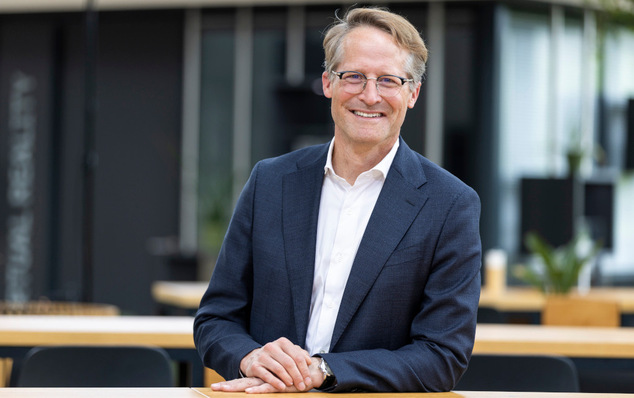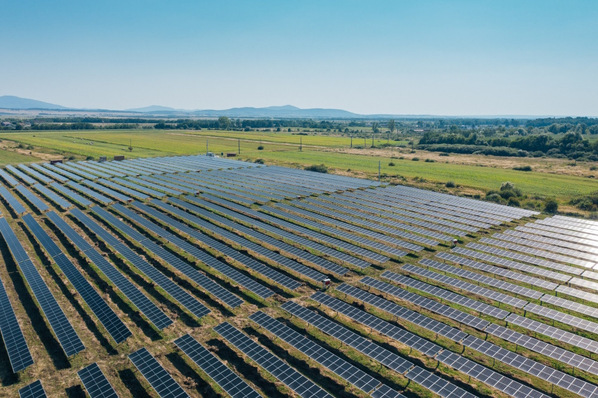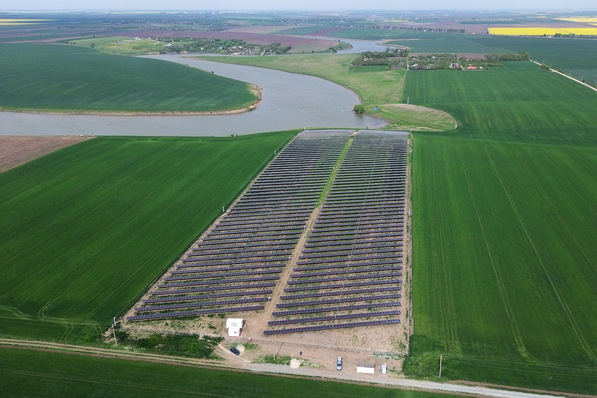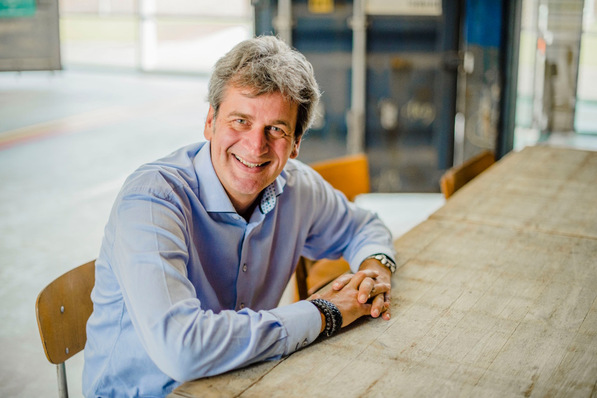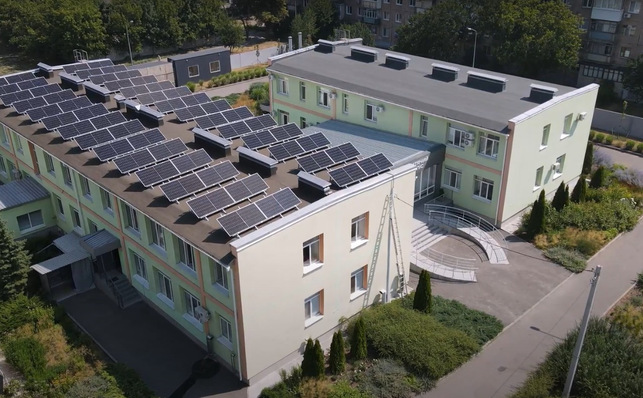Mr. Quaschning, in your new book "Energy Revolution Now" you express the hope for courageous and visionary politicians. Since December, we've had the new "traffic light" government and a Minister for Economic Affairs and Climate Protection, Robert Habeck. In your view, has anything moved forward politically in terms of climate protection?
Yes, I do see strong reason for hope - at least in Germany - and as bitter as it is, the war in Ukraine is once again increasing the pressure for a rapid energy turnaround. What is being discussed now goes much, much further than what Mr. Altmaier and the last government did. What Mr. Habeck has presented is still not enough - he couldn't lean too far out of the window during the election campaign - but it is very ambitious. First of all, we have to achieve what Mr. Habeck would like to do. And in the second step, we'd actually have to take it up a notch and step up the pace. But at the moment there are only announcements, so we'll have to see what comes out of the announced Easter package and the legislative package announced for the end of the year.
In your book, you also discuss the necessary behavioral changes of each individual and the necessary change in awareness for a climate-friendly lifestyle. But the election results are what they are. So can we expect more from politics in a parliamentary democracy?
Yes, what bothers me very much is that there is no real honest communication. Mr. Habeck also stood up and said that we'll just make the few changes and then the 1.5 degree path will be achieved. And that is definitely not true. You have to come clean with the people. Many people outside have not yet understood how dramatically bad the effects of the climate crisis will be and what has already happened. It's a bit like, well ok the summers are getting hotter and I have to water a bit more. That's what the climate crisis is for a lot of people. Of course then you don't have the respect for it as if you know the facts from science, and you have to communicate that. Science has also warned about oil and gas imports for a long time. Nothing happened, with the fatal consequences that we are now experiencing. Only when people understand where the problem is will they accept the solution. During the election campaign, all parties stood up and talked about the 1.5 degree path, which would actually require us to be climate neutral by 2035. But people are lulled into believing that we are doing something to protect the climate. And then people think, okay, what is being done in Berlin now is enough, not much needs to change, it's working as it is. And this message is fatal, and it is not really well done by all parties.
So should the media also illustrate the consequences of climate change even more drastically and at the same time show people positive perspectives that change is possible?
Exactly, we just have to take a look. We've heard a lot about Corona the last two years. The sum of the talk shows on Corona have felt like they've far exceeded what we've heard about climate change for the last 20 years. And the drama of the consequences of the climate crisis will be quite different from that of the Corona crisis and also from that of the Ukraine war. And that is not reflected at all in the reporting. Whenever Fridays for Future holds a demonstration, there is always a bit of discussion. Whenever energy prices are high, people discuss it. Even last summer's extreme flooding in the Ahr Valley was hardly associated with the climate crisis. So it's clear that the media's job is to do more to educate people. Of course, this is also a task for science, and we are increasingly trying to do this. There has certainly been a clear jolt as a result of Fridays for Future, and also in civil society. And what pleases me is that many companies are now rethinking their approach. In other words, they have understood that they have to restructure their companies and make them climate-neutral. The path to this goal is perhaps not entirely clear to everyone. In the past, people usually smiled at you, saying that this is all green nonsense and climate protection is somehow nice to have, but it's just one topic among 25 others. But that has already changed. Many companies have now understood that climate protection and renewable energies are also about strategic corporate goals and their competitiveness. In some areas, business is now even further ahead than politics.
Or even further than parts of the "people"?
Yes, parts of the business community are, but you can't make sweeping generalizations here. There are still many corporate leaders who simply drive their old boots. Some earn good money, so they just take it. But it's precisely companies that are taking a longer-term view that see that something is going to change radically in the next 10 years. Even if you look at the communication, for example, that RWE, which is still the largest coal company, is now saying that they want to be climate-neutral within a generation, that still sounded different 10 years ago. At that time, RWE executives said that climate neutrality in Germany was not even possible. At any rate, communication has changed, but the measures that are actually needed have not yet changed to the same extent.
Does this kind of change in corporate communications also offer the opportunity to get people more involved in climate protection and to promote climate-friendly behavior through a change in advertising?
Yes and no. We still have greenwashing, in other words, many companies give themselves a green cloak. When I watch the companies' commercials before the 8 p.m. news, they are all climate-friendly and climate-neutral and want the best for the future. But some just plant a few trees and then sell that as great climate protection. But at least it's a topic, which means that even as a company, you believe you have to position yourself here, because this is also demanded by customers. And that is very exciting. Then it's up to the customers to keep an eye on the companies to see if this is real or greenwashing. And, of course, policymakers must set the right framework conditions, for example in the area of nutrition. Consumers have no chance to see which vegetables are transported how far or how high the ecological footprint is. What's needed here, for example, is a CO2 traffic light on the products so that people are informed enough when they buy them to be able to make a conscious decision.
In your book, you also call for fundamental changes in our lifestyle, such as largely doing without air travel or half as many cars in Germany. Does this directly contradict economic growth?
That's a very exciting question. After all, we always focus on economic growth. The question is whether that is the right metric at all. So, if economic growth is below two percent, then everyone gets a hiccup in Germany. In Bhutan, there is a happiness minister who simply says that we are trying to measure people's satisfaction. Because more economic prosperity does not automatically mean more happiness. For example, if the workload increases sharply, then all the mega-consumption doesn't help me. Sure, you need a certain amount of economic security, and that's good and important for satisfaction, but whether I have an annual salary of 70,000, 80,000 or 90,000 euros doesn't really play that big a role in people's satisfaction, but the higher salary is usually translated into consumption. That's why you have to consider whether the economy alone is the right yardstick, or whether it's not about people's satisfaction. In terms of fewer cars and fewer flights. If I look back to my youngest childhood, we had a state with fewer cars and we didn't fly on vacation either. But the satisfaction I felt then was not significantly less than it is today. And the best vacations are perhaps spent with the family 200 kilometers away from home, where we went together by bicycle. The goal is not to fly somewhere on vacation, but to relax, to be with nice people and to have beautiful surroundings.
The interview was conducted by Hans-Christoph Neidlein.
Did you miss that? No more oil, gas and coal from Russia!03/02/2022 10:40 | Print view


